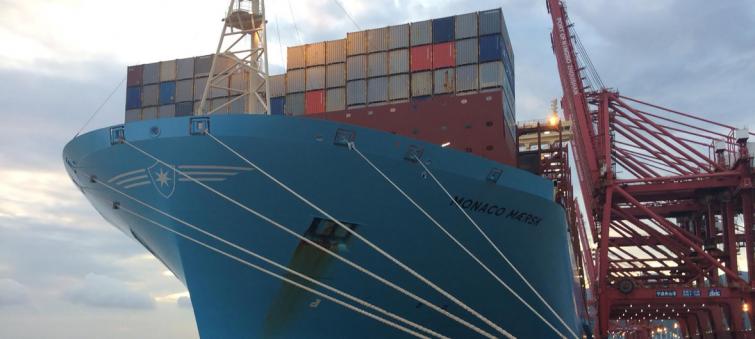
US-China trade war is a ‘lose-lose’ situation for them and the world, warn UN economists
New York/IBNS: The trade tariff spat between China and the United States has been a “lose-lose” situation for both countries and the wider world and it is likely to deteriorate unless a deal is reached, UN economists said on Tuesday.
According to data from the first six months of the year, most of the cost of higher US tariffs on China has been passed down to US consumers and firms.
“US consumers are paying for the tariffs …in terms of higher prices,” said Alessandro Nicita, an economist at the UN trade agency, UNCTAD. “Not only final consumers like us, but importers of intermediate products – firms which import parts and components from China.”
Our new paper on the trade + trade diversion effects of the US-China #tradewars shows that while China feels the pinch, other countries are benefiting. US tariffs on China have made other players more competitive in the US market, a trade diversion effect. http://bit.ly/2pxsOXD
Its firms have seen exports of these targeted products fall by a quarter over the same period on average, with other competitors – notably Taiwan – picking up some of the slack ($4.2 billion in the first half of 2019).
Other trade winners from the measures include Mexico ($3.5 billion), the European Union ($2.7 billion) and Viet Nam ($2.6 billion) and the positive effects for them “have increased over time”, UNCTAD said.
Korea, Canada and India also benefited, with “substantial” gains ranging from $0.9 billion to $1.5 billion.
Other South East Asian countries scooped up the remainder of the tariff-induced casualties, UNCTAD said, while noting that African countries saw only “minimal” benefits.
Of the $35 billion Chinese export losses in the US market, about $21 billion (or 63 per cent) was diverted to these countries and others, while the remaining $14 billion was either lost or captured by US producers.
Chinese manufacturers bearing costs
The UN agency also noted that there is early evidence that Chinese exporters may have started to bear part of the costs of the tariffs by lowering export prices.
The hardest-hit Chinese manufacturing sector has been computers and other office machinery, and communications equipment, where exports from China have declined by $15 billion.
Other areas that have “dropped substantially” include chemicals, furniture, precision instruments and electrical machinery, the UNCTAD report shows.
It nonetheless underscored the resilience of Chinese firms, which maintained 75 per cent of their exports to the US, despite the “substantial” tariffs imposed.
Trade war is a global warning
“The results of the study serve as a global warning; a lose-lose trade war is not only harming the main contenders, it also compromises the stability of the global economy and future growth,” said UNCTAD’s director of international trade and commodities, Pamela Coke Hamilton. “We hope a potential trade agreement between the US and China can deescalate trade tensions.”
While the UNCTAD report does not consider the impact of Chinese tariffs on US imports, it suggests that the result is “most likely” to be the same: “higher prices for Chinese consumers, losses for US exporters and trade gains for other countries”.
Photo caption and credit:
IMO
A cargo ship at the port of Ningbo, China.
Support Our Journalism
We cannot do without you.. your contribution supports unbiased journalism
IBNS is not driven by any ism- not wokeism, not racism, not skewed secularism, not hyper right-wing or left liberal ideals, nor by any hardline religious beliefs or hyper nationalism. We want to serve you good old objective news, as they are. We do not judge or preach. We let people decide for themselves. We only try to present factual and well-sourced news.







